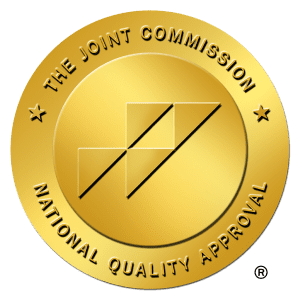
Effective communication skills can significantly impact your journey to lasting sobriety. Whether you’re rebuilding relationships, working through challenging emotions, or preparing for life after treatment, expressing yourself clearly and listening actively is essential. At Grata House Recovery in Thousand Oaks, CA, we emphasize the importance of strong communication strategies as a cornerstone of a successful recovery journey. This blog post will explore how effective communication skills in addiction recovery can strengthen interpersonal bonds, enhance self-awareness, and ultimately support long-term sobriety.
Why Effective Communication Matters in Addiction Recovery
Communication goes beyond simple conversation. It’s about expressing emotions, needs, and concerns in a way that fosters mutual understanding. In the context of addiction recovery, effective communication can:
- Improve Relationships: Strained relationships often accompany addiction. Communicating respectfully and openly can help rebuild trust with friends, family, and support groups.
- Reduce Relapse Triggers: Honest communication helps you identify emotional triggers and stressors before they escalate. Sharing your concerns can prevent feelings of isolation or misunderstanding that might lead to relapse.
- Strengthen Self-Esteem: Your self-worth increases when you know you are being heard and understood. This boost in confidence is invaluable for staying committed to a sober life.
- Build Emotional Resilience: Effective communication of thoughts and feelings allows you to process emotions healthily. Sharing your challenges and receiving feedback builds the emotional resilience needed to tackle future obstacles.
- Enhance Support Networks: Clear communication fosters more profound connections with peers, sponsors, and therapists. This supportive network becomes a powerful resource in your recovery journey.
Core Communication Skills for Addiction Recovery
Developing effective communication skills in addiction recovery often begins with mastering a few foundational techniques. These include:
1. Active Listening
Active listening involves giving the speaker your full attention, acknowledging their words, and responding in a way that confirms you’ve heard and understood them. Here are a few tips:
- Maintain Eye Contact: Show genuine interest by looking at the speaking person.
- Use Nonverbal Cues: Nod, smile, or appropriate facial expressions to signal understanding.
- Ask Clarifying Questions: If something is unclear, politely ask for more information to prevent misunderstandings.
- Give Verbal Feedback: Simple phrases like “I understand” or “That makes sense” help confirm you’re listening.
2. Assertiveness
Being assertive isn’t about dominating a conversation; it’s about expressing your thoughts and feelings calmly and confidently, without aggression. This technique is particularly crucial in preventing misunderstandings and resentment. Key principles include:
- Use “I” Statements: Instead of saying, “You make me angry,” say “I feel upset when…” to own your feelings and reduce defensiveness.
- Stand Your Ground Respectfully: If you have a boundary or concern, assert it clearly but kindly.
- Stay Focused on the Topic: Don’t let a vital issue get lost in unrelated arguments. Clearly articulate what needs to be addressed and avoid personal attacks.
3. Clarity and Honesty
In addiction recovery, honesty is a pillar of progress—especially honesty with oneself. When communicating with others:
- Be Transparent: Hiding relapse triggers, cravings, or emotional struggles can stall your recovery. Being open and transparent helps you receive the help and understanding you need.
- Avoid Ambiguity: If you need support, specify how others can help. If you have a concern, be clear about what it is.
4. Empathy
Empathy is the ability to understand and share the feelings of another person. When you practice empathy, you validate others’ experiences and create a supportive environment for mutual healing.
- Reflect Emotions: Try to paraphrase what the other person is saying and reflect their feelings to them, showing genuine understanding.
- Put Yourself in Their Shoes: Consider how you would feel in their situation and communicate that shared perspective.

Overcoming Common Communication Barriers
Despite the best intentions, specific barriers can complicate communication in addiction recovery. Being aware of these barriers and having strategies to overcome them is crucial.
- Fear of Judgment: You may fear adverse reactions if you share your struggles. To overcome this, confide in a trusted professional at Grata House Recovery or a close friend who has proven their support.
- Low Self-Esteem: Feelings of shame or guilt often accompany addiction. Practice self-compassion and remind yourself that your thoughts and feelings are valid.
- Cultural or Family Norms: Some families or cultures discourage open talk about emotions. Consider counseling or group therapy to practice safe, open communication in a supportive setting.
- Lack of Practice: Communication is a skill that improves over time. Seek feedback from peers and professionals, and view mistakes as learning experiences.
Communication in Family and Group Therapy
A structured therapeutic setting—like the one offered at Grata House Recovery in Thousand Oaks, CA—provides a safe space to practice and refine communication skills. Here’s how:
- Family Therapy: Family dynamics can be complex. These sessions, guided by a licensed therapist, encourage open dialogue and help clarify misunderstandings. Loved ones learn how to communicate concerns, set boundaries, and offer supportive feedback to the individual in recovery.
- Group Therapy: Group settings allow you to interact with peers with similar challenges. You can practice new communication techniques in real time through open discussion, role-playing exercises, and feedback.
- Aftercare Meetings: Post-treatment group meetings or 12-step programs offer ongoing support. Regular attendance helps you maintain communication skills and continue growing in recovery.
Practical Tips to Strengthen Communication Skills
Incorporating these practical tips into your daily routine can help you develop and maintain effective communication skills in addiction recovery:
- Journal Regularly: Write down your thoughts and feelings each day. Journaling allows you to reflect on how you handle conversations, identify emotional triggers, and set goals for improvement.
- Practice Mindfulness: Before initiating a difficult conversation, take a moment to breathe deeply and ground yourself. Being present helps you remain calm and clear-headed.
- Seek Feedback: Ask trusted friends, sponsors, or mentors for their honest assessment of your communication style. Use their insights to make adjustments.
- Role-Play Scenarios: If you’re anxious about a specific conversation—such as talking to an estranged family member—practice with a counselor or peer in a safe environment.
- Set Communication Goals: Maybe you want to reduce interruptions or express appreciation more often. Setting specific, measurable goals can motivate you to improve.
How Grata House Recovery in Thousand Oaks, CA Can Help
At Grata House Recovery, we believe that mastering effective communication skills in addiction recovery is crucial for sustained sobriety and improved overall well-being. Located in the serene environment of Thousand Oaks, CA, our facility offers a range of therapeutic and holistic approaches to help you develop the skills you need for a fulfilling life in recovery.
- Individual Therapy: Work one-on-one with experienced therapists who can offer personalized communication strategies tailored to your unique challenges and goals.
- Family Counseling: We invite families into the recovery process, facilitating open, respectful dialogue that can rebuild trust and repair relationships.
- Group Sessions: Our group therapy sessions offer a supportive, empathetic environment where you can share experiences, practice new communication techniques, and learn from peers.
- Holistic Programs: Beyond traditional talk therapy, we offer mindfulness sessions, art therapy, and other holistic modalities that encourage self-expression and enhance communication skills.
- Aftercare Support: Successful recovery extends beyond treatment. Our aftercare programs provide continued resources, support groups, and counseling to help you stay connected and refine your communication skills.
Get Help Today
Effective communication skills in addiction recovery serve as the backbone of meaningful relationships and long-term sobriety. By focusing on active listening, assertiveness, clarity, and empathy, you can address misunderstandings, build healthier connections, and bolster your confidence. With consistent effort and professional guidance, overcoming barriers like fear of judgment, low self-esteem, and lack of practice becomes more manageable.
At Grata House Recovery in Thousand Oaks, CA, we are committed to empowering individuals with the tools and techniques needed to thrive in recovery. From individual counseling and family therapy to group sessions and holistic programs, our comprehensive approach ensures you have the support you need every step of the way. If you or a loved one is struggling with addiction and looking to improve communication skills, reach out to us today. We’re here to help you build a healthier, more connected life based on open, honest, and empathetic communication.
By developing strong communication skills, you can enhance your emotional well-being, cultivate healthier relationships, and set yourself on a path to sustained recovery. At Grata House Recovery, our dedicated team is here to guide you through every step of this life-changing process. Remember, lasting sobriety begins with understanding—and understanding begins with effective communication.
